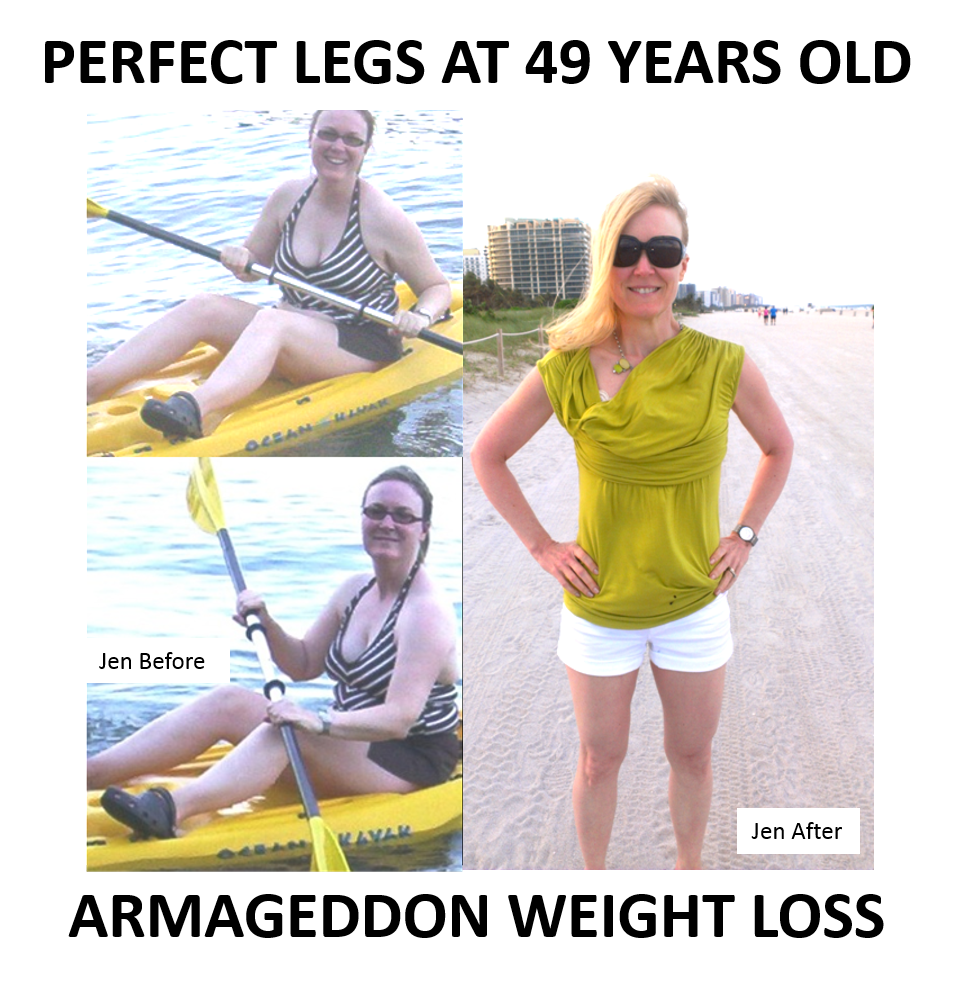Dr. Kathy A. Trumbull, our Chief Endocrinologist here at Armageddon Weight Loss Program is an expert when it comes to your hormones and weight loss. Whether it’s developing weight loss for women over 40, creating weight loss DVDs on how to lose weight fast or putting together the best weight loss video to tone your butt; Dr. Trumbull has been an invaluable resource to our program. Kathy, is plain spoken and does a fantastic job of helping clients to truly understanding complex issues such as; such as how to achieve diabetic remission. A state in which all signs and symptoms of your diabetes disappears and you get off all your diabetic medications. How to lose cellulite fast or providing weight loss tips for women about what makes a workout DVD the best weight loss DVD for women.

Understanding what effect your hormones can have on your body will help you to learn how to get rid of cellulite fast. Just take a look at Jen’s legs at 49. No drugs, No creams, No supplements, just hard science and a bit of hard work.
We ask Kathy to introduce herself to you and to provide some tough love on what makes the best weight loss workout program for women.
Here is what she had to say:
1. What is your full name and area of expertise?
Kathy A. Trumbull, MD, FACOG – (Wisconsin USA)
Reproductive Endocrinology and Infertility
(A subspecialty within Obstetrics and Gynecology)
Essentially I take care of women with hormone issues such as polycystic ovary syndrome. I also work with menopause, endometriosis, fibroids, and infertility (among many things).
2. What is the biggest problem faced when it comes to weight loss?
Trying to get the patient to own their problem, then address it. Too many people don’t want to hear that being overweight is a problem. Many of the main diseases that are related to being overweight cannot be felt unless they are at a very severe stage—high blood pressure, diabetes, high cholesterol. The patients do not feel sick so their attitude is why should they bother to make changes. Even when shown lab results or other evidence of disease in their body they may not want to make any changes.
Society does not work for us, it works against us. The average patient wants a fast change for very little to no effort. They do not want to have to work at making changes. They also think that excess is just fine and can even look at eating less and exercising as deprivation. These attitudes are reinforced by society.

Carlos was addicted to hyperpalitable foods. Salty, sugar and fats. Think food addiction is not real think again. Once you understand the role that your hormones play you will begin to learn how to lose weight fast and how to honestly keep it off.
Few to no patients look at their condition as a form of addiction—addiction to a poor lifestyle of eating too much and not exercising enough. They cannot imagine that they need to break away from their current lifestyle and change to a better set of habits. Only with sustained effort at first will their bodies change to want (enjoy) the new, improved lifestyle. It is very difficult to get a person to understand that they can feel better if they make the changes suggested.